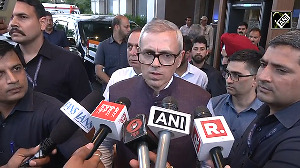The Millionaire Next Door is an outstanding book on identifying factors which make an individual wealthy based on her/his own efforts during their lifetime. The book was actually the culmination of a 20-year research effort by two American business school professors Dr Thomas Stanley and Dr William Danko. The book was on the bestseller lists of The New York Times (for more than three years), The Wall Street Journal, Business Week, USA Today and Los Angeles Times.
The authors discovered three main factors, which make people wealthy, as a result of their intensive research that involved following a large diverse group of people for 20 years. Effective planning of their finances was one of these factors. The authors state that the people who become wealthy are either good themselves at managing their finances or fortunate to come across an effective wealth manager.
This finding does not come as a surprise since active income if invested well can be leveraged many times over. Suppose an individual makes an average of Rs one lakh per month in a 40-year work span giving him a sum of Rs 4.8 crore from her/his active employment. If s/he were to save just 10 per cent of her/his earnings every month and generate easily achievable return of 9 per cent, in the same 40 years he will be making a passive income of Rs 4.7 crore.
If s/he manages to earn 10 per cent per annum for each of these 40 years, the resulting sum will be Rs 6.32 crore and an astounding Rs 11.76 crore at 12 per cent return. What is earned over a span of 40 years by working can be easily multiplied 3-4 times over by just saving and investing a small percentage of what you earn every month.
Power of passive income can be far greater than active income and can be a great facilitator in leading a life of great freedom and security. It can help in cutting the reliance on active employment and giving the freedom to do what an individual really likes to do later on. Therefore I define wealthy person as somebody whose passive income is sufficient to sustain a desirable life style.
How does one realise the power of passive income? The answer is asset allocation: it is the single most important tool for maximising wealth. Multiple research studies show that appropriate asset allocation determines more than 90 per cent of a portfolio return while individual security selection only a miniscule part.
It is simply the art of determining that if you have Rs 100 to invest -- depending on business cycle and life cycle stages of a business or an asset -- asset allocation might be Rs 10 in fixed income securities, Rs 20 in domestic real estate, Rs 5 in global real estate fund, Rs 35 in Indian equity funds, Rs 10 in a structured derivative fund, Rs10 in world gold fund and Rs 10 in Latin American fund. Moreover, the process is dynamic. As the business cycle moves and the life cycle and personal conditions change, allocation to Indian equity funds might increase to Rs 70 or for that matter go down to Rs 10 depending on the market conditions here. These dynamic portfolio-balancing decisions harness the true power of passive income.
Clearly, the core competence of a good wealth manager is the ability to generate wealth by maximising risk-adjusted returns. S/he should be able to discern the macro business cycle patterns and your life cycle requirements and then select the most optimal asset allocation. The first question I ask the bankers and practicing wealth managers in my two-day wealth management course is about the core competence of a wealth manager.
In India the field is nascent and many still answer that it is relationship management. Drawing an analogy to my previous profession of a medical doctor, while a good bedside manner is important, there is no substitute for core medical competence. There is no point in dying in the arms of a medical doctor with good relationship knack but inadequate life saving skills.
But how should one go about finding such a wealth manager? The investor should focus on evidence of investment ability. Either the wealth manager should be able to demonstrate a track record of wealth generation for her/his own portfolio or her/his existing investors over a significant period of time. S/he should also substantiate her/his competence in actively following and discerning shifts in business cycle patterns.
Wealth manager's role is holistic -- s/he is looking at the portfolio in totality. S/he optimises based on business cycle and what your personal stage and requirements are. In reality, always select a fund manager who might be managing distinct asset classes like equities, fixed income, real estate, art and commodities.
Consequently, selecting a good wealth manager is an important decision. It is a decision that can have a significant and far reaching impact on the quality of your life. Evidence of investment ability is the key important factor in selecting an effective wealth manager. However, wealth manager adds value in many other ways and we will be discussing those in part two of this article next week.
Dr Sanjiv Mehta is the MD, Finance Doctor, a wealth management company and author of Winning The Wealth Game: Cricket Strategies For Financial Freedom.







 © 2025
© 2025